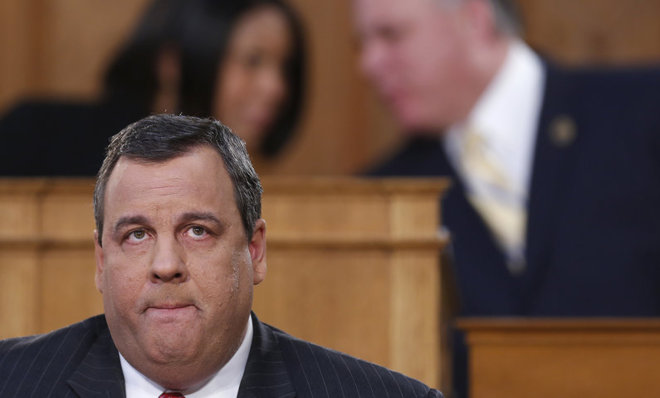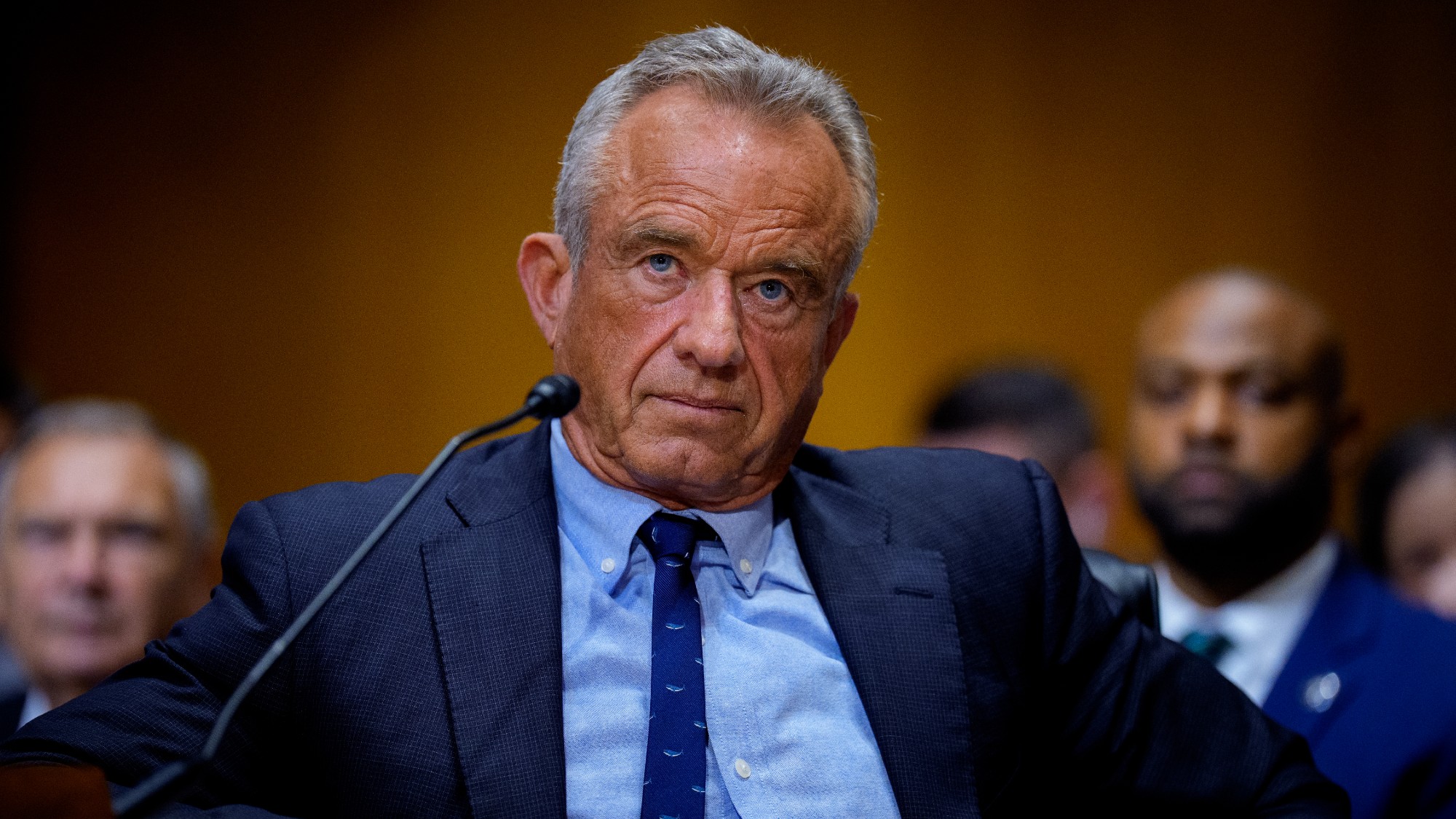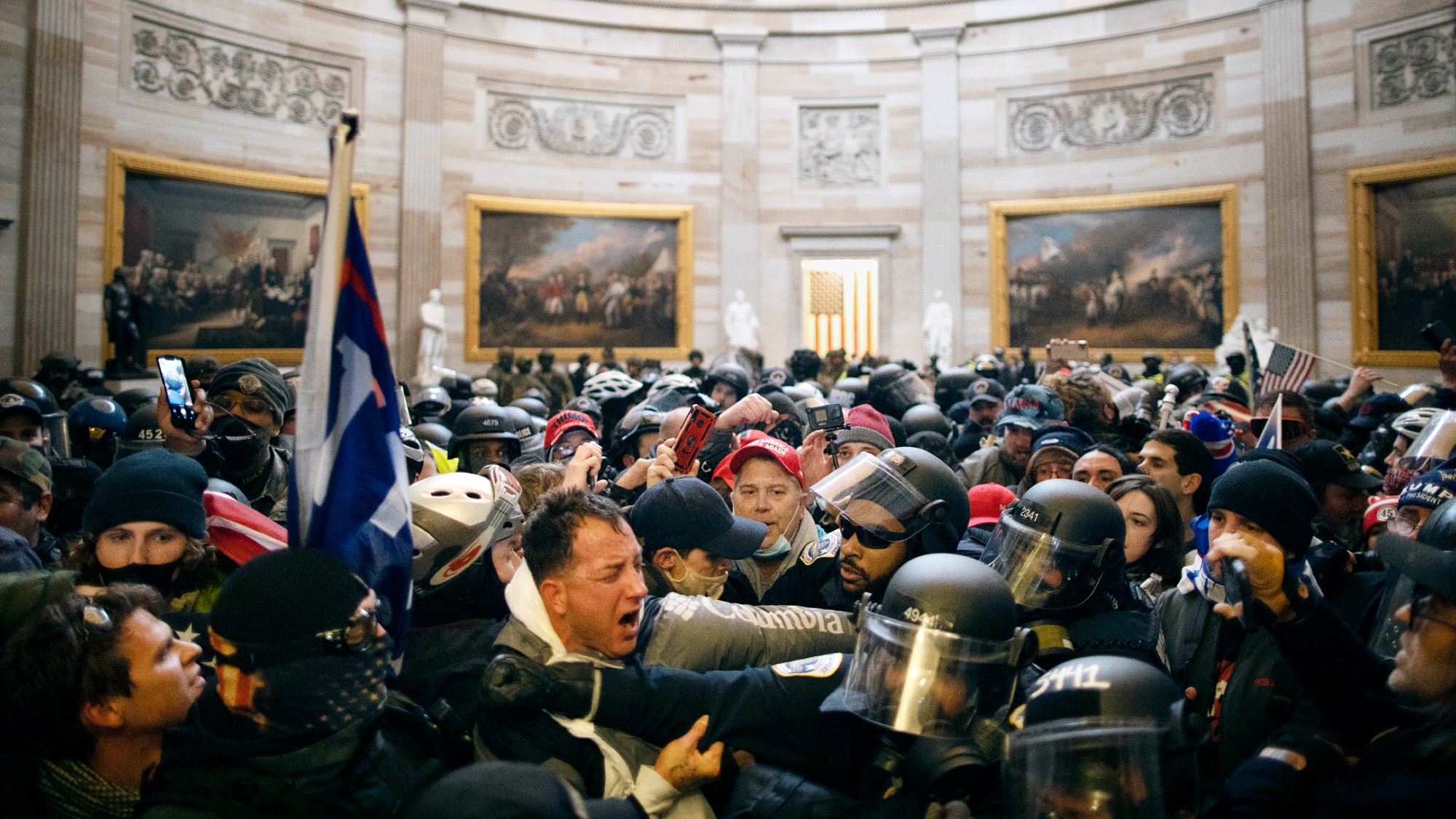The scandals swirling around Chris Christie aren't going away anytime soon


In a new episode of Political Wire's podcast, we spoke to legal analyst Jeffrey Toobin about the legal implications of scandals plaguing New Jersey Gov. Chris Christie (R), particularly the ongoing investigations into his administration's closure of lanes on the George Washington Bridge. Toobin recently penned a column for the New Yorker on how Christie has a long road ahead in Bridgegate.
Here are five takeaways:
1. The bridge scandal is not as bad as Watergate and Iran-Contra: In terms of how the scandal's legal and political fallout is proceeding, Bridgegate does bear some resemblance to past scandals such as Watergate, Whitewater, and the Iran-Contra affair; for Bridgegate has also prompted both legislative and federal investigations. But in other senses, Bridgegate is no Watergate, Toobin said: "I certainly believe that in the magnitude and importance of the scandal, it is not there and it will probably never be there."
The Week
Escape your echo chamber. Get the facts behind the news, plus analysis from multiple perspectives.

Sign up for The Week's Free Newsletters
From our morning news briefing to a weekly Good News Newsletter, get the best of The Week delivered directly to your inbox.
From our morning news briefing to a weekly Good News Newsletter, get the best of The Week delivered directly to your inbox.
2. The mere existence of a criminal investigation doesn't mean any crimes were committed: Political observers may be quick to speculate wildly about the implications of a federal grand jury probe into Bridgegate. But the closure of lanes, though perhaps troubling both politically and ethically, isn't necessarily criminal. That doesn't mean the scandal isn't worth looking into, Toobin said, "but for all the people who are hyperventilating about this, I'm not clear at all that a crime took place." If the federal investigation doesn't lead to charges, none of the information it collected will become public.
Another thing is worth noting, Toobin said: Prosecutors can grant immunity to persuade reluctant witnesses or suspects into cooperating, whereas legislative investigators lack that power. If the federal probe yields no charges, the legislative investigators and the public may never hear some crucial insights into what actually happened in Bridgegate.
3. Tensions could emerge between the legislative and federal investigations: Lawmakers may release information from their probe to the public regularly, or aides may leak some of it. But ultimately the stakes are far higher in the federal investigation, given the potential for criminal charges. And as a result, criminal probes tend to go far slower as investigators try to assemble all their information first. So far no clear conflicts have emerged between the investigations. But the faster pace of the legislative probe and the prospect of leaks from it have the potential to create headaches for federal investigators as a result, Toobin said.
4. No matter what Christie aides' lawyers may say, the Fourth Amendment probably doesn't apply here: A couple of high-profile Christie aides might not only take the Fifth Amendment, which lets people protect themselves from self-incrimination. Their lawyers also have called for lawmakers to withdraw document subpoenas on the basis of the Fourth Amendment, which the lawyers claim provides a constitutional privacy right that extends to overly broad document subpoenas. It's unlikely that the Fourth Amendment protects them here, Toobin said: "I don't think any courts have bought that theory. This is about taking the Fifth. And I think that's just some posturing by their lawyers."
A free daily email with the biggest news stories of the day – and the best features from TheWeek.com
5. Media scrutiny of Christie may bring conservative Republicans to his side, but overall the scandal is still bad for him: Buried in an NBC/Wall Street Journal poll that otherwise had bad news for Christie was a finding that support for him among core Republicans had actually increased. Staunch conservatives have tended to view Christie as not conservative enough. But some of them may have warmed to him in light of a common enemy, a mainstream media that these conservatives view as being overly hostile to a fellow Republican. Said Toobin: "It's quite obvious what happened there: 'The enemy of my enemy is my friend.'" Somewhat ironically, then, the media coverage of the scandal could help Christie politically in the short term, should he seek the GOP presidential nomination in 2016. As for the bigger picture: "I don't think anybody is kidding themselves that this is somehow going to help him," Toobin said.
Listen to the whole thing here:
Subscribe to the podcast via iTunes or RSS to get episodes automatically downloaded.
Taegan D. Goddard is the founder of Political Wire, one of the earliest and most influential political websites. He also runs Wonk Wire and the Political Dictionary. Goddard spent more than a decade as managing director and COO of a prominent investment firm in New York City. Previously, he was a policy adviser to a U.S. senator and governor. Goddard is also co-author of You Won — Now What? (Scribner, 1998), a political management book hailed by prominent journalists and politicians from both parties. Goddard's essays on politics and public policy have appeared in dozens of newspapers across the country, including The Washington Post, USA Today, Boston Globe, San Francisco Chronicle, Chicago Tribune, Philadelphia Inquirer, and Christian Science Monitor. Goddard earned degrees from Vassar College and Harvard University. He lives in New York with his wife and three sons.
-
 Childhood vaccines: RFK Jr. escalates his war
Childhood vaccines: RFK Jr. escalates his warFeature The health secretary cut the number of recommended childhood vaccines from 17 to 11
-
 Jan. 6: Ultimately a success?
Jan. 6: Ultimately a success?Feature The White House website offers a revisionist history of the Jan. 6 coup attempt
-
 Renee Good: A victim of ICE’s dangerous tactics?
Renee Good: A victim of ICE’s dangerous tactics?Feature The 37-year-old mom was killed in Minneapolis, sparking protests around the country
-
 The billionaires’ wealth tax: a catastrophe for California?
The billionaires’ wealth tax: a catastrophe for California?Talking Point Peter Thiel and Larry Page preparing to change state residency
-
 Bari Weiss’ ‘60 Minutes’ scandal is about more than one report
Bari Weiss’ ‘60 Minutes’ scandal is about more than one reportIN THE SPOTLIGHT By blocking an approved segment on a controversial prison holding US deportees in El Salvador, the editor-in-chief of CBS News has become the main story
-
 Has Zohran Mamdani shown the Democrats how to win again?
Has Zohran Mamdani shown the Democrats how to win again?Today’s Big Question New York City mayoral election touted as victory for left-wing populists but moderate centrist wins elsewhere present more complex path for Democratic Party
-
 Millions turn out for anti-Trump ‘No Kings’ rallies
Millions turn out for anti-Trump ‘No Kings’ ralliesSpeed Read An estimated 7 million people participated, 2 million more than at the first ‘No Kings’ protest in June
-
 Ghislaine Maxwell: angling for a Trump pardon
Ghislaine Maxwell: angling for a Trump pardonTalking Point Convicted sex trafficker's testimony could shed new light on president's links to Jeffrey Epstein
-
 The last words and final moments of 40 presidents
The last words and final moments of 40 presidentsThe Explainer Some are eloquent quotes worthy of the holders of the highest office in the nation, and others... aren't
-
 The JFK files: the truth at last?
The JFK files: the truth at last?In The Spotlight More than 64,000 previously classified documents relating the 1963 assassination of John F. Kennedy have been released by the Trump administration
-
 'Seriously, not literally': how should the world take Donald Trump?
'Seriously, not literally': how should the world take Donald Trump?Today's big question White House rhetoric and reality look likely to become increasingly blurred
